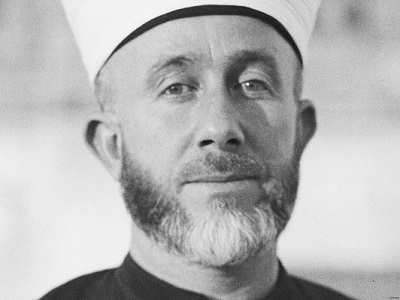
To a large extent, Mufti Al-Hussaini, who led the Palestinian national movement during one of its most critical phases, has been deliberately excluded from the Palestinian national narrative. His relation to Nazi Germany, which was only a small episode in his political career, should not be seen as if it summed up his entire history.
The suspicions about the Mufti’s relationship with the Nazi plan to annihilate the Jews are rooted in the Nuremberg trials, when Dieter Wisliceny, an assistant to Adolf Eichmann – who played a main role in the Holocaust – claimed that the Mufti had met with Eichmann and briefed him about the details of the Nazi operation to annihilate the Jews. Yet, Eichmann, who fell into Israeli hands in 1960 and was executed in Israel in 1962, said in his trial that he never met the Mufti except accidentally and for one time only at an official reception.
Commenting on the matter, Hannah Arendt, the historian, sociologist and renowned philosopher, said that the accusation levelled against the Mufti about some sort of link with the Nazi operation to annihilate the Jews was baseless and seemed to have been based on mere rumours. But even this sort of debate had to do with whether the Mufti knew or did not know the details of the Nazi genocide policy and never ever reached the level of Netanyahu’s hysterical theory.
Since the beginning of the British Mandate, Haj Amin Al-Hussaini occupied the most senior religious position in Palestine in his capacity as the Mufti of Jerusalem and the president of the Supreme Islamic Council. Until the mid-1930s and the death of Kazim Al-Hussaini, chairman of the Palestinian Executive, the Mufti did not play any tangible political role and his relationship with the British Mandate Authorities was generally amicable.
During the Al-Buraq events of 1929, the Mufti stood by the Palestinian protest movement against the Jewish attempts to change the status quo at the Al-Buraq Wall (the Wailing Wall). In 1931, the Mufti convened the Jerusalem General Islamic Conference, which was considered the first step in the Arab and Islamic mobilisation for the Palestinian cause.
During the first few months of the Palestinian revolt of 1936 – 1939, the Mufti witnessed the devastating effects of the British repressive policy against his people. It was then that his position started to change. The British accused him of incitement and tried to arrest him. However, he fled to Lebanon in October 1939, and upon sensing a change of heart on the part of the French vis-a-vis his presence in Lebanon, he left for Iraq, which had been going through a period of political instability as a result of the British pressure upon its government to participate in the war against Germany.
– Read more: Netanyahu, Hitler, al-Mufti Al-Hussaini and the Holocaust – Dr. Basheer Nafi, Middle East Monitor




